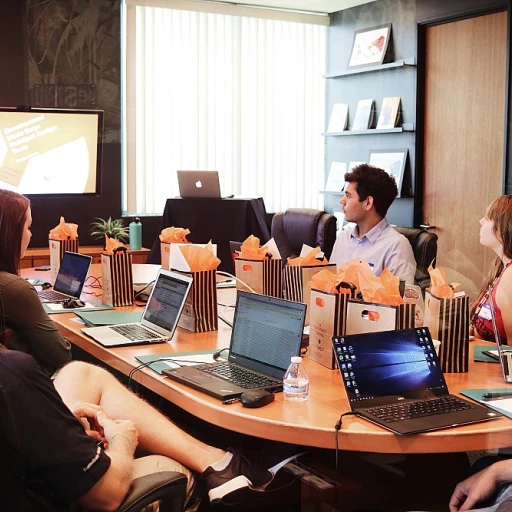
What does a political canvasser do?
Understanding the Day-to-Day Work of a Political Canvasser
A political canvasser plays a crucial role in any campaign, acting as the direct link between the candidate and the public. The main job of a canvasser is to engage with community members, often going door to door, to share information about the campaign, gather opinions, and encourage voter participation. This outreach work helps campaigns understand the needs and concerns of the community, which can shape campaign strategies and messaging.
Canvassers are often the first point of contact for many voters. Their ability to communicate clearly and maintain a positive attitude is essential. They may work independently or as part of a team, depending on the campaign’s structure. The job description typically includes:
- Speaking with residents about political issues and the candidate’s platform
- Collecting data and feedback to inform the campaign manager and team
- Distributing campaign materials and answering questions from the public
- Recording information accurately, respecting privacy and data protection guidelines
While no advanced degree is usually required, most campaigns look for a high school diploma or equivalent, strong communication skills, and some customer service or sales experience. The ability to work for extended periods, sometimes outdoors, is important. Canvassers will be provided with training and resources to help them succeed, but a willingness to learn and a positive attitude are key.
For those interested in the strategic aspects of candidate sourcing, understanding the canvasser’s role is a great starting point. The experience gained in this job can be valuable for anyone looking to build a career in political campaigns or public outreach in the United States.
Essential skills for effective canvassing
Key Abilities Every Canvasser Needs
Success in a canvasser job goes far beyond simply knocking on doors. Political campaigns rely on canvassers who can connect with the public, gather accurate data, and represent the campaign’s message with professionalism. Here are some of the most important skills and experience areas for anyone considering this role:
- Communication skills: The ability to clearly explain campaign goals and listen to community concerns is essential. Canvassers must be comfortable speaking with people from diverse backgrounds and adapting their approach as needed.
- Positive attitude: Political canvassing can be challenging, especially when facing rejection or skepticism. A positive, resilient mindset helps canvassers stay motivated and professional throughout the day.
- Customer service and sales experience: Many of the skills used in customer service or sales—like active listening, persuasion, and building rapport—translate directly to canvassing. Experience in these fields can be a strong asset.
- Ability to work independently and as part of a team: Canvassers often work alone for extended periods, but they also need to coordinate with their team and campaign manager. Flexibility and reliability are key.
- Attention to detail: Accurate data collection is vital. Canvassers must carefully record information from their outreach, respecting privacy and following campaign protocols.
- Physical stamina: The job description often requires canvassers to be on their feet, walking door to door for extended periods, sometimes in challenging weather conditions.
- Basic education: Most canvasser jobs in the United States require a high school diploma or equivalent. Training will be provided, but a foundation in communication and organization is important.
While salary and average salary figures can vary by region and campaign, the value of a canvasser’s work is clear. Their outreach helps campaigns search for new supporters, gather vital community data, and build momentum. If you’re interested in how group interviews can help identify candidates with these skills, check out this resource on understanding group interviews.
Developing these skills and experience areas not only supports the team and campaign manager but also prepares canvassers for growth in political campaigns and related fields.
Daily tasks and expectations
What a Typical Day Looks Like for a Political Canvasser
The daily work of a canvasser is dynamic and often physically demanding. Whether working independently or as part of a team, canvassers play a crucial role in campaign outreach. Their main job is to connect with the public, share information about the campaign, and gather data that supports candidate sourcing efforts.
- Door-to-door outreach: Canvassers spend much of their day visiting homes, engaging with community members, and discussing political issues. This requires strong communication skills and a positive attitude, as well as the ability to work for extended periods outdoors.
- Data collection and reporting: After each conversation, canvassers record valuable data—such as voter preferences and concerns—which is then shared with the campaign manager. This information helps refine campaign strategies and supports the search for qualified candidates.
- Team meetings and briefings: Regular check-ins with the campaign team ensure everyone is aligned on goals and messaging. Canvassers may also receive updated training or review privacy guidelines to protect sensitive information.
- Community events and public outreach: Beyond door-to-door work, canvassers often participate in local events to increase visibility and build relationships within the community. Experience in customer service or sales can be a plus here, as these skills help in engaging diverse audiences.
- Administrative tasks: Completing reports, updating resumes, and reviewing the job description are part of the canvasser job. Attention to detail is important, especially when handling data or preparing for the next day’s outreach.
Canvassers in the United States typically need a high school diploma or equivalent, and the ability to work independently or as part of a team is highly valued. The average salary varies by region and campaign, but the role offers valuable skills and experience for those interested in political campaigns or future roles in outreach and communication.
For those interested in exploring related fields, understanding which companies operate in the transportation field can provide insights into how large-scale outreach and logistics are managed in other industries.
Challenges faced by political canvassers
Common Obstacles in the Field
Political canvassers face a unique set of challenges that can impact their job performance and overall campaign success. The work often requires canvassers to operate independently or as part of a team, engaging with the public in diverse communities. This outreach can be physically and emotionally demanding, especially when canvassers spend extended periods on their feet, going door to door in all types of weather.
Handling Public Interaction and Privacy
One of the most significant hurdles is dealing with the public. Not everyone is receptive to political conversations at their door or in public spaces. Canvassers must use strong communication skills and maintain a positive attitude, even when facing rejection or hostility. Respecting privacy is crucial, as some individuals may not wish to share personal information or participate in political discussions. Canvassers need to balance persistence with respect for boundaries, which requires experience and good judgment.
Data Collection and Accuracy
Accurate data collection is a core part of the canvasser job description. Canvassers gather information that will be provided to campaign managers and teams to inform strategy. Mistakes in recording data or misunderstanding responses can impact the effectiveness of the campaign. This makes attention to detail and the ability to work independently or within a team essential skills for anyone in this role.
Physical and Emotional Demands
The job can be physically taxing, with canvassers often working long hours, sometimes for an average salary that may not reflect the effort involved. In the United States, the average salary for a canvasser varies by region and campaign, but the work is rarely easy. Canvassers need stamina, resilience, and the ability to stay motivated throughout the campaign period.
Balancing Outreach with Campaign Goals
Canvassers must align their outreach efforts with the broader goals of the political campaign. This means adapting their approach based on feedback from the community and the campaign manager. The ability to adjust strategies, whether working independently or as part of a team, is vital for success in political campaigns. Experience in customer service or sales can be beneficial, as these roles also require adaptability and strong communication skills.
- Physical endurance for extended periods of outreach
- Ability to handle rejection and maintain a positive attitude
- Attention to detail for accurate data collection
- Respect for privacy and community boundaries
- Collaboration with campaign teams and managers
Despite these challenges, many canvassers find the experience rewarding, especially when their work contributes to meaningful political change. A high school diploma or equivalent is often required, but the most important qualifications are strong communication skills, a willingness to learn, and a commitment to the campaign's mission.
How political canvassers support candidate sourcing
The Impact of Canvassers on Candidate Sourcing
Political canvassers play a crucial role in the search for strong candidates during a campaign. Their work goes beyond simple outreach; canvassers are often the first point of contact between the public and the campaign team. Through direct communication at the door, over the phone, or at community events, canvassers gather valuable data about voter preferences, concerns, and the overall mood of the community. This information is essential for campaign managers and recruiters when evaluating the effectiveness of their candidate sourcing strategies.
Gathering Data and Building Connections
Every conversation a canvasser has is an opportunity to collect insights that can shape the campaign’s approach. By listening to the public and reporting back, canvassers help the team understand which skills and experience resonate most with voters. This feedback loop informs the job description for future canvassers and even influences the qualities sought in political candidates themselves. The ability to work independently or as part of a team, strong communication skills, and a positive attitude are often highlighted as key requirements based on canvasser feedback.
Supporting Recruitment and Outreach
Canvassers also support candidate sourcing by identifying potential supporters or volunteers within the community. Their customer service and sales experience allow them to spot individuals who might be interested in joining the campaign, either as canvassers or in other roles. This grassroots approach to recruitment is especially valuable in the United States, where local knowledge and community trust are essential for political campaigns.
- Resume screening: Canvassers may recommend individuals they meet who have the right skills or a high school diploma or equivalent, making the search for new team members more efficient.
- Privacy and data handling: Canvassers are trained to respect privacy while collecting information, ensuring that all data will be handled according to campaign guidelines.
- Job growth: As campaigns expand, canvassers help identify areas where more outreach is needed, supporting the campaign manager in scaling the team and refining the canvasser job title and job description.
By working on the front lines, canvassers provide the experience and data needed to improve candidate sourcing, making them a vital part of any political campaign’s success. Their ability to work for extended periods, adapt to different communities, and maintain a positive attitude directly supports the campaign’s goals and helps ensure the best candidates are found and supported throughout the election cycle.
Tips for recruiting and training political canvassers
Building a Strong Canvassing Team
Recruiting and training canvassers is a crucial step for any political campaign. The right team can make a real difference in outreach, public engagement, and ultimately, in the success of the candidate sourcing process. Here are some practical tips to help you find and prepare the best people for the job:- Define the job clearly: Write a detailed job description for the canvasser role. Include the job title, expected daily tasks, required skills and experience, and mention if a high school diploma or equivalent is needed. Be transparent about the ability to work independently or as part of a team, and note if extended periods of walking or standing are involved.
- Highlight key skills: Look for candidates with strong communication skills, a positive attitude, and experience in customer service or sales. These qualities are essential for effective door-to-door outreach and engaging with the community.
- Emphasize privacy and data handling: Make sure your canvassers understand the importance of privacy and handling voter data responsibly. Training should cover how to collect, store, and use information in compliance with regulations in the United States.
- Offer realistic expectations: Be upfront about the average salary for canvassers, the nature of the work, and the support that will be provided by the campaign manager or team leaders. This helps set clear expectations and reduces turnover.
- Train for real scenarios: Use role-playing and shadowing to help new canvassers practice their approach, refine their communication, and handle challenging situations. Encourage sharing of experiences within the team to build confidence and skills.
- Foster a supportive environment: Encourage canvassers to work both independently and as part of a team. Regular check-ins, feedback sessions, and recognition of achievements can boost morale and performance.













